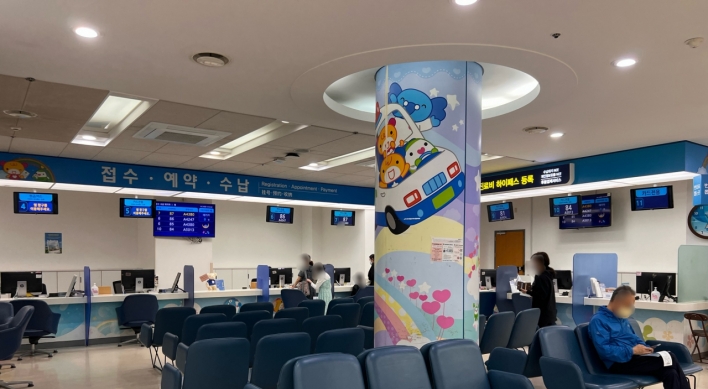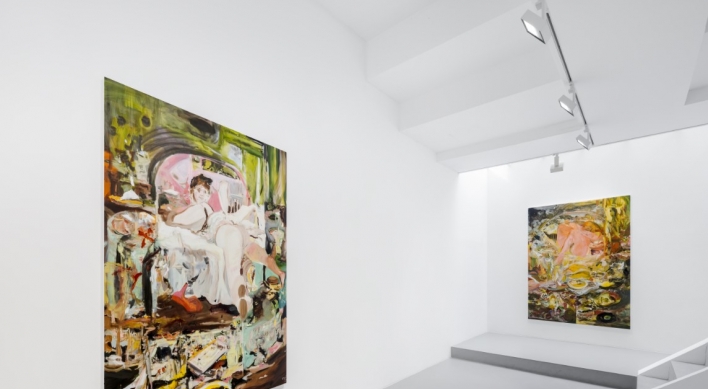[Editorial] Act like a union
Trainee doctors must identify key conditions for returning to work, talk with the government
By Korea HeraldPublished : April 18, 2024 - 05:30
The trainee doctors who walked off the job two months ago in protest of the government’s plan to increase medical school enrollment are now demanding shorter mandatory military service among other things.
Ryu Ok Hada, a resident who tendered his resignation on Feb. 16, said Tuesday he interviewed 150 interns and residents, and they said they would return to work if they are guaranteed the right to organize unions and to strike.
“It appears that about half of the trainee doctors are willing to return to work depending on the preconditions,” Ryu Ok said.
One of Ryu Ok’s interviewees, an intern who resigned, said his colleagues wouldn’t choose to be trainee doctors unless the mandatory military service period for them was shortened.
Those who do not work as trainee doctors are required to serve 18 months in the military, while those who have completed their training as interns and residents, or stopped in the middle of it need to serve 38 months as military doctors.
A second-year resident in one of the essential health care specialties said that he saw many of his seniors and professors get indicted and pay damages for medical accidents, and that he would not go back to work unless doctors are given legal immunity for well-meaning medical practices. The government has said that it will establish a legal safety net to better protect doctors from excessive medical malpractice suits.
The trainee doctors also said the vice health minister who made “thoughtless remarks” about them must be replaced, and that they gave up training because similar situations will continue to occur under any administration and doctors will be “demonized,” according to Ryu.
In an earlier survey of nearly 13,000 trainee doctors and over 18,000 medical students, 66.4 percent said they were willing to work as trainee doctors in the future, but only if certain preconditions were met. They said the plan to increase medical school enrollment should be scrapped (93 percent); costs of medical service in essential health care specialties must be increased (82.5 percent); the health minister and vice health minister must be replaced (73.4 percent); and a 52-hour work week system should apply to trainee doctors (71.8 percent).
Ninety-six percent said the medical school enrollment must be reduced or kept at current levels.
In the two months they have been gone, nurses and medical professors who also treat patients at large hospitals have overworked themselves to the point of burnout.
Some 41 percent of the professors of medicine at Seoul National University were working more than 80 hours per week, according to a survey of 522 professors released by an emergency committee of the SNU professors on Tuesday. Sixteen percent were working over 100 hours a week. Only 8.3 percent said they were working 52 hours or less.
Fifty-two percent said they were under a high level of stress. Eighty-two percent of them were suspected to be suffering from depression, the professors’ committee said.
President Yoon Suk Yeol said Tuesday that the government would continue to push for the "structural reforms" that Korea needs such as labor, education, pension and medical reforms, and that it “will listen more carefully to accommodate reasonable suggestions.”
The interns and residents cannot keep saying this and that like children. They need to form a group of representatives to narrow down their key demands, or preconditions for returning to work, and talk with the government to strike a deal. They want the right to form unions, and that is what unions do. No union on earth has ever gotten everything they want. They negotiate level-headedly to get what is most important to them.
No one in this country has demonized doctors as a whole. Also, no one can understand the junior doctors’ prolonged collective action at the cost of the remaining medical staff’s health, and preposterous, selfish demands like reducing the medical school enrollment or keeping it as it is.
The trainee doctors must realize that they are not children. They should learn to think outside the limits of their own interests, and sincerely talk with the government about their key demands.
-
Articles by Korea Herald




![[Grace Kao] Hybe vs. Ador: Inspiration, imitation and plagiarism](http://res.heraldm.com/phpwas/restmb_idxmake.php?idx=644&simg=/content/image/2024/04/28/20240428050220_0.jpg&u=)

![[Herald Interview] Mom’s Touch seeks to replicate success in Japan](http://res.heraldm.com/phpwas/restmb_idxmake.php?idx=644&simg=/content/image/2024/04/29/20240429050568_0.jpg&u=)


![[News Focus] Lee tells Yoon that he has governed without political dialogue](http://res.heraldm.com/phpwas/restmb_idxmake.php?idx=644&simg=/content/image/2024/04/29/20240429050696_0.jpg&u=20240429210658)









![[Today’s K-pop] Seventeen sets sales record with best-of album](http://res.heraldm.com/phpwas/restmb_idxmake.php?idx=642&simg=/content/image/2024/04/30/20240430050818_0.jpg&u=)